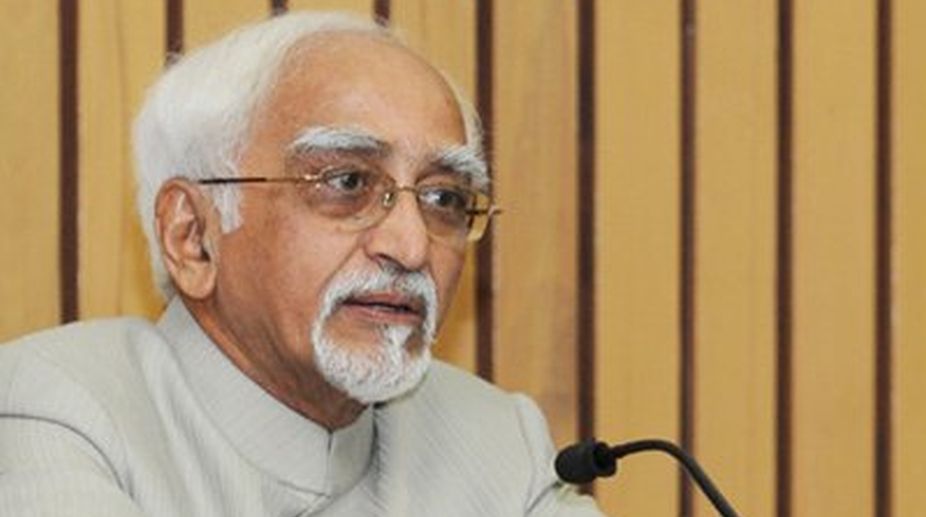The constitutional promise of equality is only achievable when development reaches the last in line, former Vice-President of India M Hamid Ansari said on Tuesday.
Speaking at the launch of the book, “Working with Muslims: Beyond Burqa and Triple Talaq”, Ansari said, “We need to eschew the prevalent virus of considering Muslims with apprehension, intolerance and otherness.”
Advertisement
The book, by activist and writer Farah Naqvi, in collaboration with Sadbhavna Trust, goes down to the ground in eight major states of India, and gives a sense of voluntary sector development work, with the largest marginalised minority in the world’s largest democracy.
Stories in the book show the emergence of a new, young Muslim leadership engaging with daily struggles for education, health, livelihood, women’s rights, while navigating the minefield of ‘identity’ and issues of ‘Muslim-ness’.
The book highlights Muslim women leading the way to a new articulation of issues that impact them, beyond the rhetoric of burqa and triple talaq.
But it also finds that, 12 years after the Sachar report, the ‘development of Muslims’ still struggles for basic legitimacy, wedged between the promise of the Constitution and the politics of communalism.
Among those who spoke at the discussion following the launch were journalist Siddharth Varadarajan, social activist Harsh Mander, political scientist Hilal Ahmed and civil society activist Gagan Sethi.











